 Immigration status, religion and backlash from universities influenced how some college students participated in pro-Palestinian protests and encampments.
Immigration status, religion and backlash from universities influenced how some college students participated in pro-Palestinian protests and encampments.
Published August 9, 2024
 Chrissy Park
Chrissy Park
 Sonia A. Rao
Sonia A. Rao
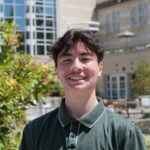 Senji Torrey
Senji Torrey

California Highway Patrol stands off with pro-Palestinian protesters hours after law enforcement dismantled the encampment on UC San Diego’s Library Walk. (Courtesy of Hana Tobias for the UCSD Guardian)
As three law enforcement agencies descended on UC San Diego to dismantle a pro-Palestinian encampment on an early morning in May, an Indonesian international student sat in her room refreshing Instagram.
She felt morally compelled to participate in the pro-Palestinian movement on campus. But concerns over physical safety and deportation due to her immigration status sidelined her from participating when student demonstrations reached their peak.
“There was a brief moment that I was really considering to just go because these students are my friends,” the student said. “At the same time, with my immigration status, it just got a little more complicated than that.”
She’s not alone.
In interviews with academic experts and fifteen college students across the United States, AAJA Voices found that protesters faced challenges related to immigration status, religion and family history.
Additionally, national news outlets have characterized pro-Palestinian demonstrations as an “elite phenomenon.” But a Voices data analysis of hundreds of schools discovered that more than half the protests took place at public schools, where students tend to come from a more diverse range of socioeconomic statuses.
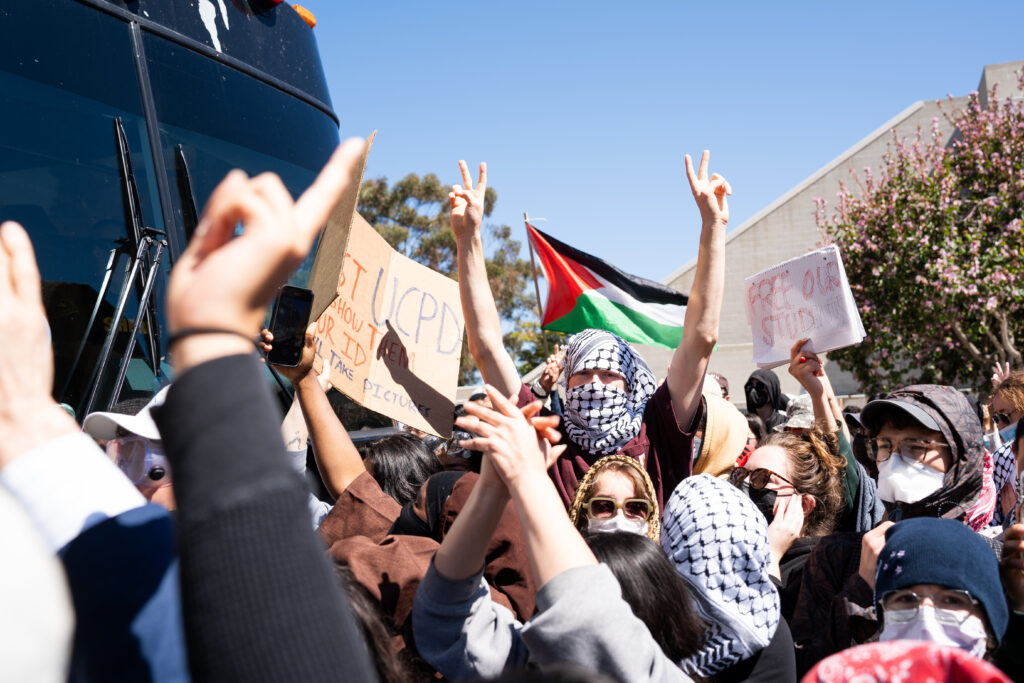
Pro-Palestinian demonstrators protest in front of a San Diego County jail bus holding arrested pro-Palestinian protesters. (Courtesy of Hana Tobias for the UCSD Guardian)
Students must weigh immigration status concerns against protesting
Witnessing how university administrators cracked down on peaceful protesters — including student arrests and withholding degrees — factored into some students’ decision to wind down their involvement, especially those in the U.S. on student visas and green cards.
The Indonesian international student, who was studying on an F-1 student visa, never went to off-campus demonstrations. As police presence increased on campus, she stopped attending some on-campus scheduled events.
According to a UC San Diego spokesperson, law enforcement arrested 60 students when they dismantled the campus’ pro-Palestinian encampment on May 6.
The international student was at her off-campus apartment at the time, where she was left to reflect on how she could have wound up among those arrested.
“I was like, ‘Damn, that could have been me,’” she said. “I just remember watching the entire thing unfold through my screen and I was basically three bus stops away from where it happened.”
The student didn’t know how getting arrested would complicate her visa status and create new challenges; there’s no Indonesian embassy in San Diego. An arrest could also complicate her relationship with her parents, who were not aware of her presence at these demonstrations and discouraged her from attending them.
The Indonesian citizen is one of many students forced to reconsider their immigration status when pro-Palestinian protests and encampments took place on their campus. These considerations are especially common for Asian students, who make up the largest international student population in the U.S.

San Diego County Sheriff officers file out of UC San Diego’s Price Center to aid in the transport of county jail buses through a sea of pro-Palestinian protesters. (Courtesy of Hana Tobias for the UCSD Guardian)
Stephen Lee, a professor of law and faculty advisor for the Asian Pacific American Law Students Association at UC Irvine, said undocumented students are most directly impacted by the consequences of protesting. Contact with police, an arrest or a conviction raises the risk of deportation or not receiving immigration benefits down the road, Lee said.
For international students on temporary visas, Lee said expulsion from their universities would jeopardize their ability to remain in the U.S.
“Immigration status figures into any sort of decision to engage in critical protest,” Lee said.
One engineering sophomore at Rice University in Houston, Texas, who is undocumented, requested anonymity due to her immigration status. She cited the Rice student body’s deep support for either Israel or Palestine as a factor in deciding to scale back her involvement in on-campus demonstrations.
She explained that she has always been very public about her status as undocumented and fears that someone may report her to Immigrations and Customs Enforcement (ICE).

A San Diego County Sheriff officer yells at a pro-Palestinian protester following efforts to stop county jail buses from transporting pro-Palestinian demonstrators from UC San Diego’s campus. (Courtesy of Hana Tobias for the UCSD Guardian)
At one point, she said her mother also urged her to stop going to demonstrations.
“She told me, ‘You have to think about it if they start arresting people and you don’t have your paperwork on you,’” the Rice University student said. “That’s when I was like it’s no help to anybody if I get myself arrested and deported.”
Another international engineering student at Rice University, who is from Palestine, also requested anonymity due to his immigration status. He also raised concerns about the possibility of deportation and personal safety.
In November, a man shot three Palestinian college students one evening in a Burlington, Vermont neighborhood, including Hisham Awartani, a 20-year-old student at Brown University.
The Palestinian Rice University student said he grew worried for his own safety — not just because three college-aged Palestinians were shot in the United States, but also because he grew up with Awartani back home in the West Bank city of Ramallah.
“It deterred me from being very visible in activism,” the Palestinian international student said. “He (Awartani) got shot … just for wearing a keffiyeh; our existence is perceived as a threat — let alone organizing.”
Despite his fears, the Palestinian student ended up participating in the background of several campus demonstrations. In May, when Rice University’s Students for Justice in Palestine (SJP) Chapter demonstrated in solidarity with Columbia University’s encampment, he anonymously led the design and painting of a mural.
“I didn’t have my name anywhere,” he said. “This is a real threat to my livelihood and my family’s safety [back in Ramallah].”
Protests don’t just take place at ‘elite’ universities
A June 2024 column by The New York Times’ Bret Stephens characterized the student protests, most of which call for their schools’ divestment from companies with financial ties to Israel, as “predominantly an elite phenomenon.”
But that’s not true, said Daniel HoSang, an American Studies professor at Yale University. Instead, HoSang said national media outlets like The New York Times and The Washington Post have disproportionately focused on higher-profile universities.
“That is entirely a narrative that has been really intentionally manufactured by those that want to undermine public support for the protests and criticism of the Israeli government, U.S. government,” he said.
In reality, HoSang said selective institutions like Columbia, Stanford and Yale are “a tiny, tiny fraction of higher education in the U.S.” and public institutions across the country have taken part in the pro-Palestinian student movement. At both public and private universities, students of color, first-generation college students and students of working-class backgrounds often made up the majority in the encampments, he added.
The Crowd Counting Consortium (CCC), a joint project between the University of Connecticut and Harvard’s Ash Center for Democratic Governance and Innovation, has tracked pro-Palestinian protest activity on college campuses since Oct. 7, 2023. Its research found that at least 465 colleges and universities across the U.S. had demonstrations or encampments for Palestine, and 3,843 people were arrested.
Jay Ulfelder, a researcher at the Harvard Ash Center’s Nonviolent Action Lab, said the data show that student movements happened across a variety of campuses.
AAJA Voices found that of the 465 schools with pro-Palestinian demonstrations or encampments that the CCC tracked, 171 (37%) were private and 294 (63%) were public. Public colleges and universities tend to have students with a diverse range of socioeconomic statuses.
Ulfelder added that there are most likely many schools the CCC’s research missed due to selection bias in media coverage.
“It skews these lists towards the better-known schools,” he said.
Some high-profile schools were less involved with pro-Palestinian demonstrations, which led to some students traveling to other campuses in order to protest.
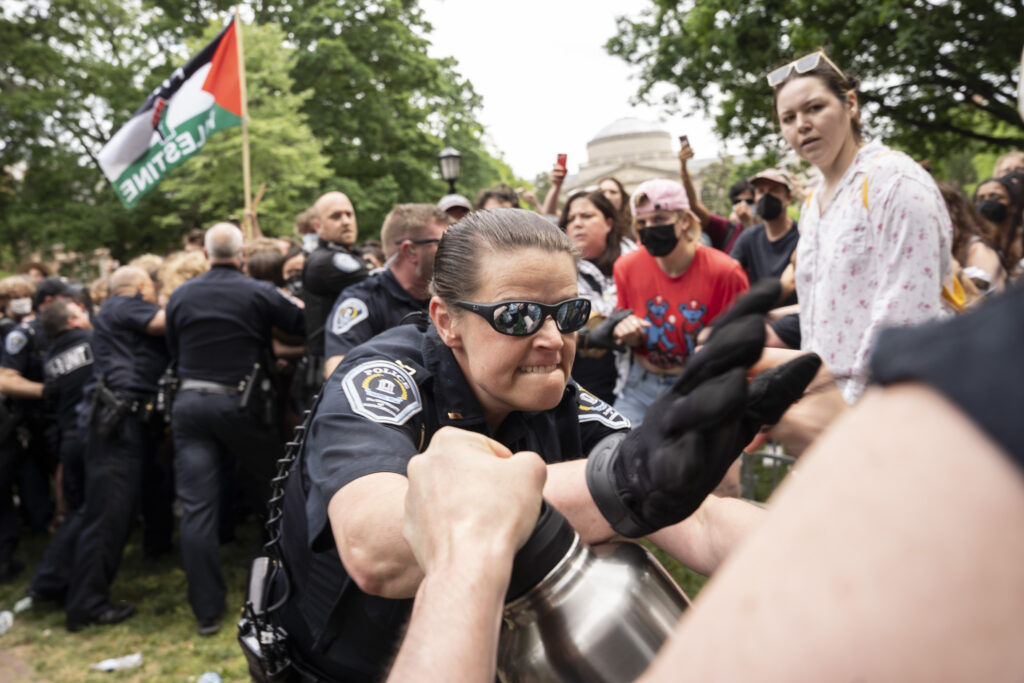
UNC Police confront students as officers take down the Palestinian flag. (Courtesy of Angelica Edwards for INDY Week)
Guo, who uses she/they pronouns, a junior at the private Duke University in North Carolina, asked to go by only their last name for safety reasons. Since protests and actions were relatively quiet on their campus, Guo traveled 12 miles to nearby public university UNC-Chapel Hill.
Guo said most students at Duke who wanted to be more involved with the movement came to UNC, like them.
“I think one of the big reasons why there was such a lack of movement at all in Duke in the spring and fall is because there’s just so many upper/upper middle class people,” she said. “I think it’s just evidence that a lot of those people do not show up for protests.”
UNC’s encampments, organized by the school’s chapter of SJP, began in late April. Guo carpooled there multiple times with friends from Duke, sometimes sleeping there overnight.
Guo was not at the encampment on April 30 when UNC police officers broke down the tents around 6 a.m. and detained 36 protesters — six of whom were arrested. But she did go to a rally that afternoon, where students protested the arrests and replaced the American flag on campus with a Palestinian one.
Guo locked arms with other protesters around the flagpole to prevent the Palestinian flag from being taken down. Police used force and pepper spray to disperse the protests. Guo was not harmed, but described the experience as frightening.
Even with the risk of being pepper sprayed or arrested, Guo noticed that many of the people protesting alongside them were from marginalized groups, students who were lower-class, transgender, queer or not citizens.
“A lot of these people have the most to lose, but they were the ones on the front lines,” they said.
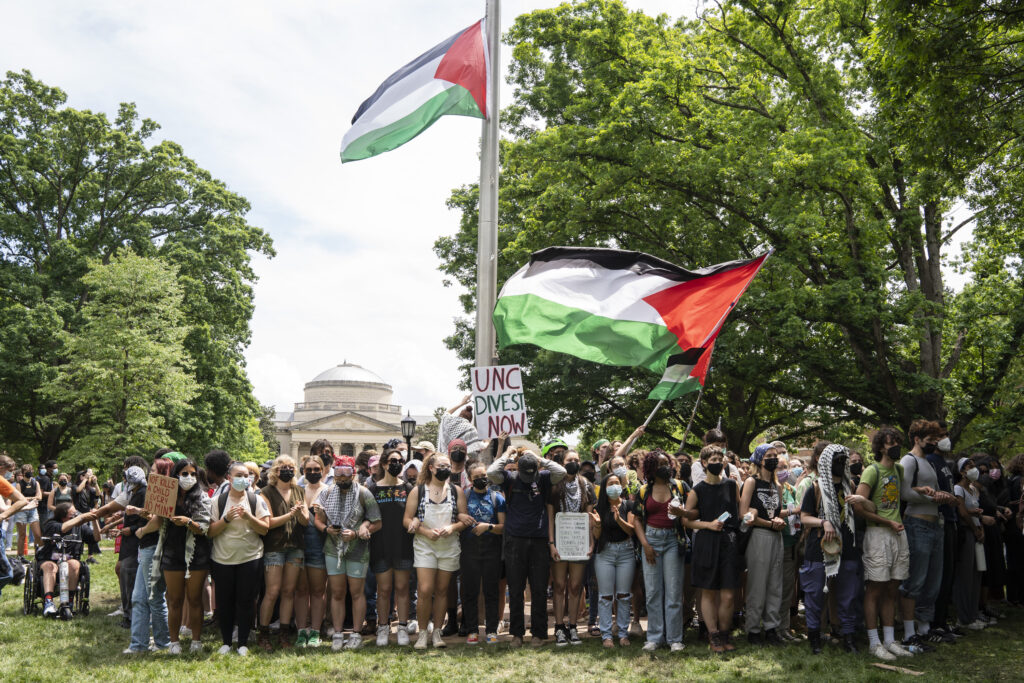
Protesters link arms to protect a Palestinian flag mounted onto the flagpole at UNC’s Polk Place. (Courtesy of Angelica Edwards for INDY Week)
Identity influences students’ decision to protest
Religion and family history also played a role in students’ participation in protests.
A journalism sophomore at UNC who requested to go only by her initials, D.K., due to concern over personal safety, said she wanted to protest, but as they escalated, she pulled back for her own safety.
D.K., who is Muslim and Pakistani American, has seen a rise in Islamophobia on campus in the closing months of the school year.
“A lot of people do not know the difference between Pakistani and Palestinian,” she said.
Her friends have been yelled at on campus, had people grab at their hijabs, and have been chased down by cars. This student started wearing a hijab one week before Oct. 7. She stopped wearing it less than a month later.
“[Wearing the] hijab was something I wanted to do for a long time,” she said. “But with all the tension on campus and off campus and around the world, I took it off. I would like to put it back on at some point in the future.”
Some students felt called on to participate in protests because of their history studies.
Guo, the rising Duke junior, is majoring in international comparative studies and Asian studies. They said both of these majors have an inherently anti-colonial, anti-imperialist viewpoint that influenced her understanding of events in Gaza. Her classes have taught her to make connections to critical events in Asian American history, such as decolonization movements and the student protests related to the Vietnam War.
Alexandra Kim, who uses they/she pronouns, is a Korean American communication major who recently received her degree from UC San Diego. They noted a throughline between the current pro-Palestinian movement and the Gwangju Uprising, a series of protests in South Korea following the implementation of martial law by newly appointed military dictator Chun Doo-hwan.
“Besides the basic principles of people being subjected to genocide [in Palestine] … just knowing that all the oppressed struggles are interconnected in its own right … drew me into trying to get involved in pro-Palestinian mobilizations,” Kim said.
However, following national reports of schools withholding degrees from students who participated in the movement, Kim found herself wrestling over how involved she should be. In the end, Kim received her diploma at the cost of more extensive participation in the encampment: While she made time to visit every day, she never stayed overnight.

Law enforcement leads a protester at UC Irvine away. (Courtesy of Mohammad Samhouri for New University)
Consequences of protesting will continue in the fall
College students are looking ahead to the fall following a turbulent spring, with student protesters arrested in the thousands across the United States.
HoSang, the Yale professor, said attacks from universities on pro-Palestinian student protesters have been “unprecedented,” and have created some fears around movement in the fall.
“In many cases, students are going to return to campuses that are far more aggressive in the way they’re willing to discipline students and faculty,” he said.
Some students are still facing the repercussions of protesting. Among them is a Pakistani American student at UC Irvine, who asked to remain anonymous due to legal concerns. He slept at the encampment every night for the first week after it was launched in April and visited almost every day after. When law enforcement dismantled the encampment in May, he was one of the 26 students arrested.
The student said he now has two pending misdemeanor charges for unlawful assembly and failure to disperse. He also said he received an interim suspension from UC Irvine in May. It was lifted a few days later, but the student’s grades suffered and he ended up dropping a class.
Despite his charges and interim suspension, the UC Irvine student said he will continue protesting when school resumes in the fall. His family is supportive of his decision, but they say not to risk a second arrest. If the police come, this time the student says he will have to leave.
“I think at the end of the day, the arrests were just a message from administration for us to not be involved anymore, to stop our actions,” he said. “I just don’t believe in letting them win, so I will still be protesting.”
Editor’s note: The name of a student was removed from this story after President Donald Trump and the Department of Homeland Security began revoking international student visas in February 2025.
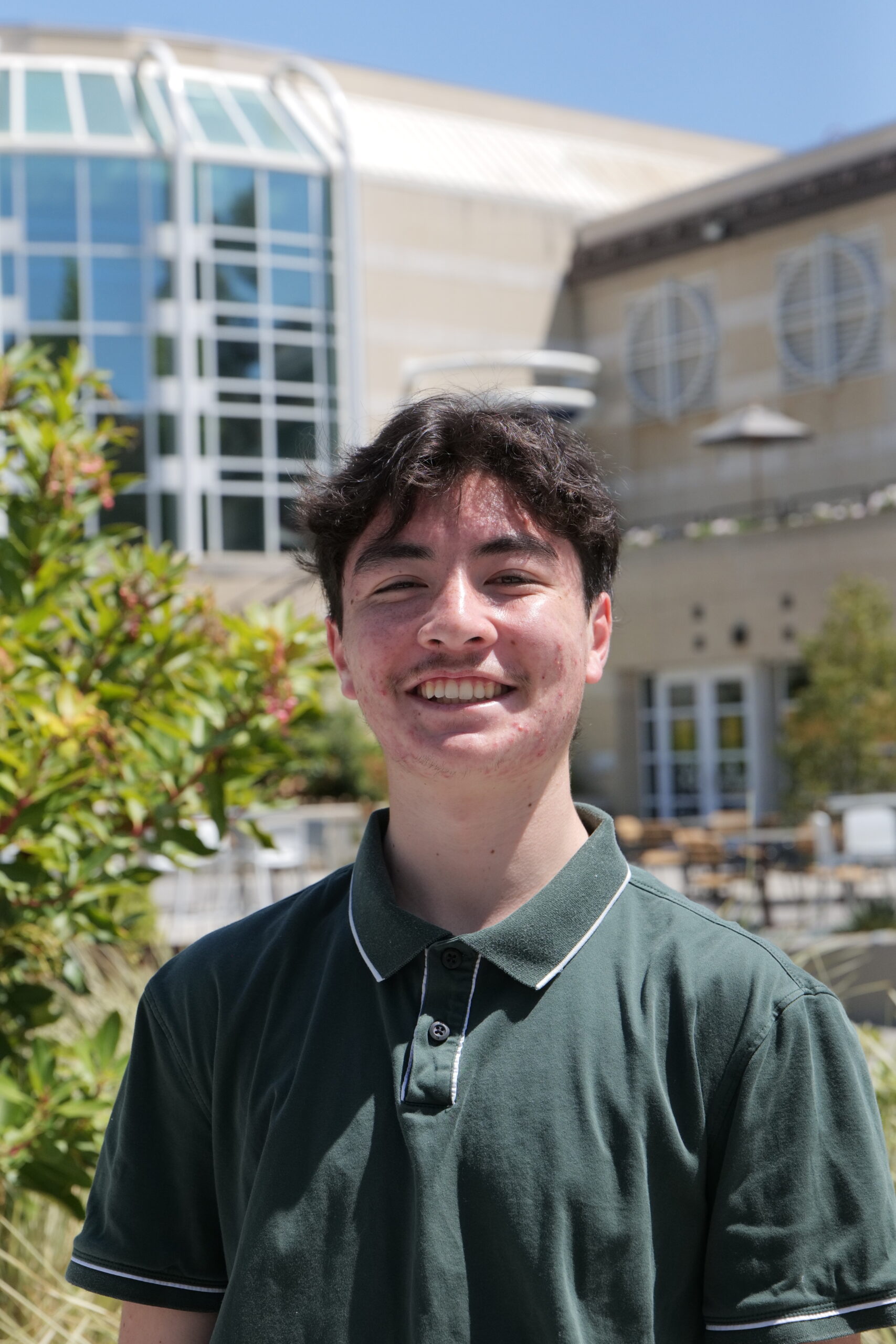
University of California, San Diego
Senji Torrey is an incoming senior at UC San Diego, where he studies communication. Torrey's roots are in sports journalism, having freelanced and interned at various Bay Area newspapers during his time as a community college student at West Valley College. He hopes to use his Voices experience to expand his journalistic breadth, delving deeper into human-focused stories within and outside of sports.

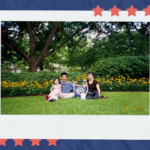


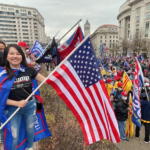
Austin 2024





Apply
Become a fellow or editor
Donate
Support our impact
Partner
Work with us as a brand
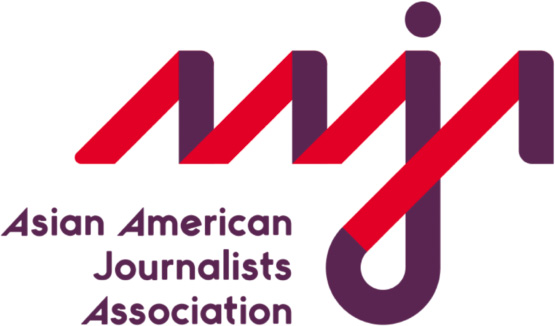
The Asian American Journalists Association (AAJA) is a membership nonprofit advancing diversity in newsrooms and ensuring fair and accurate coverage of communities of color. AAJA has more than 1,500 members across the United States and Asia.